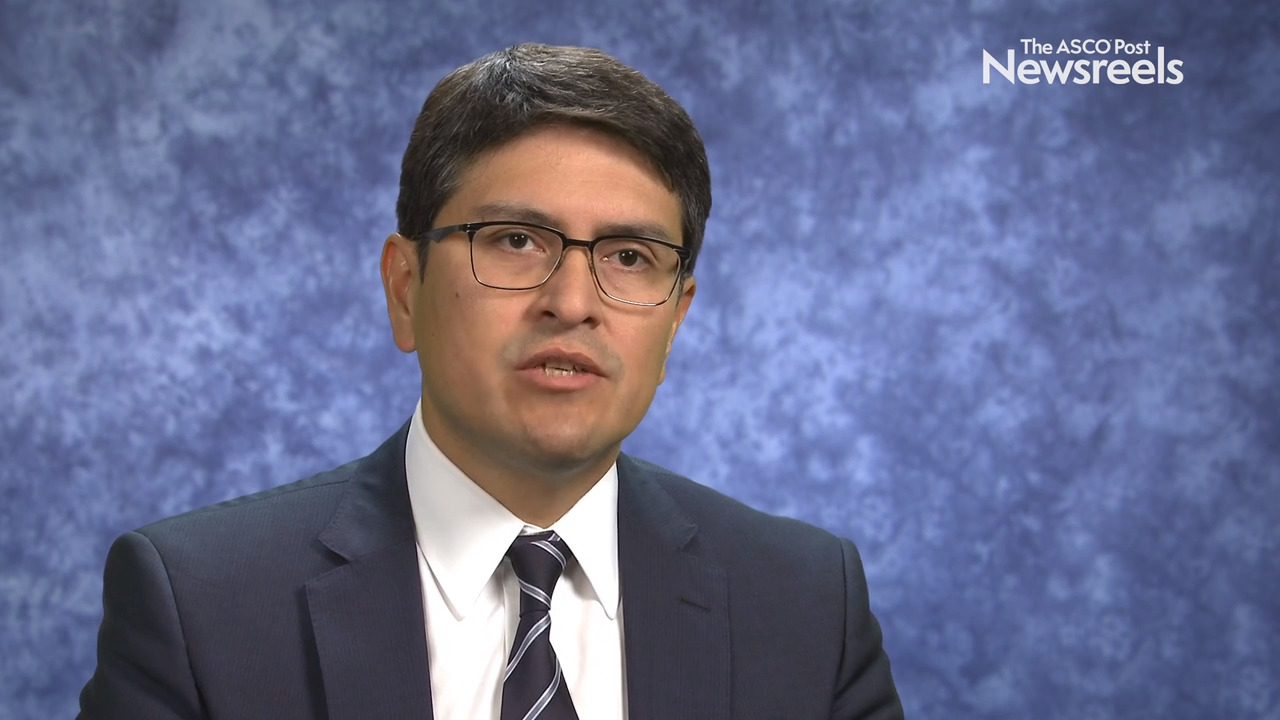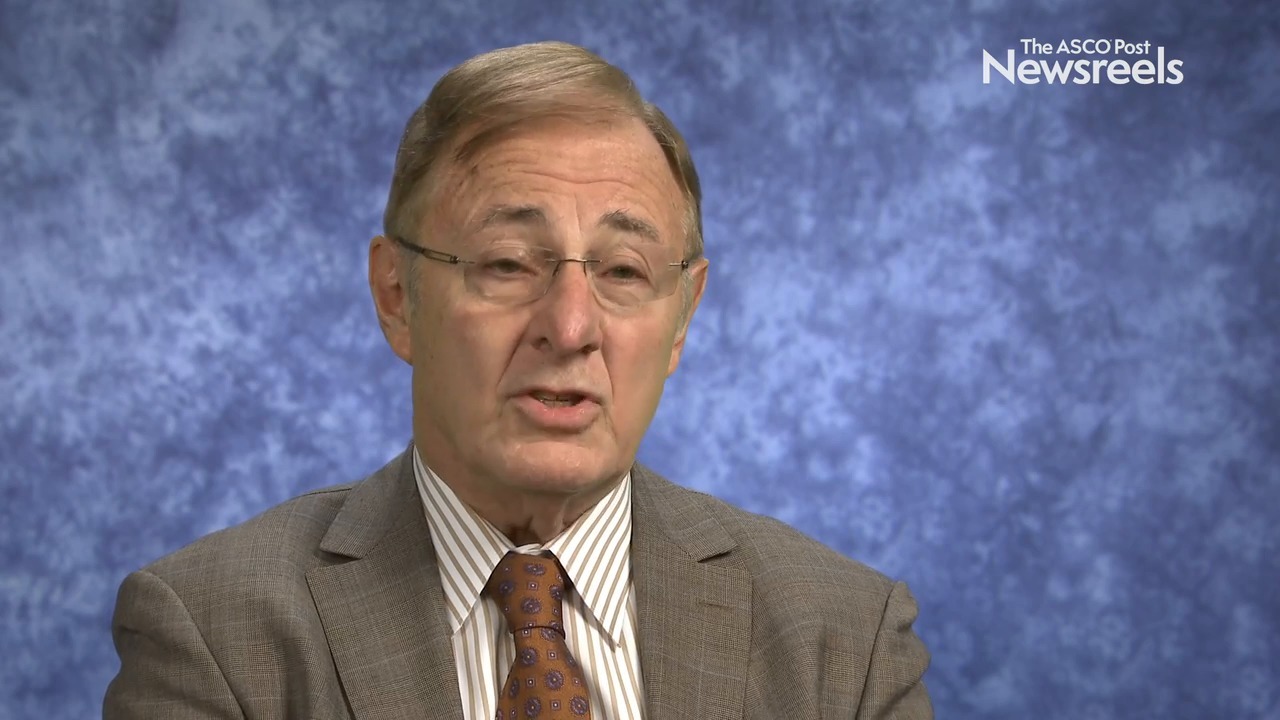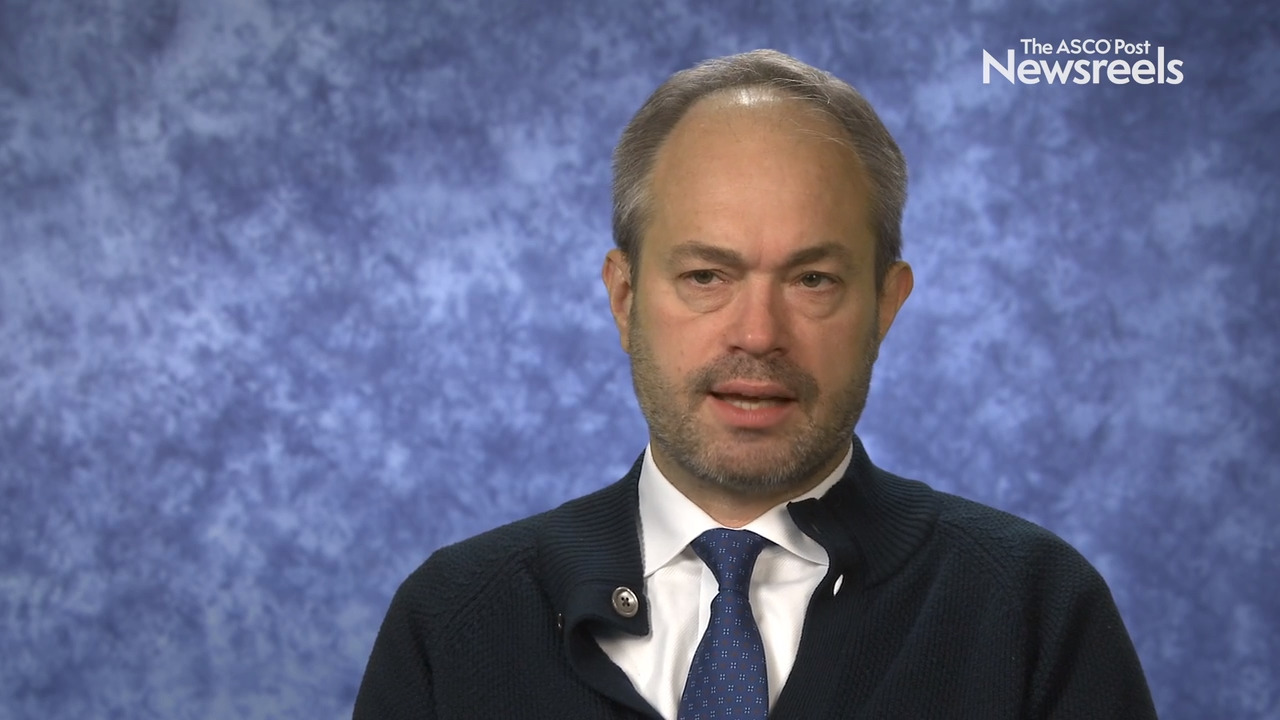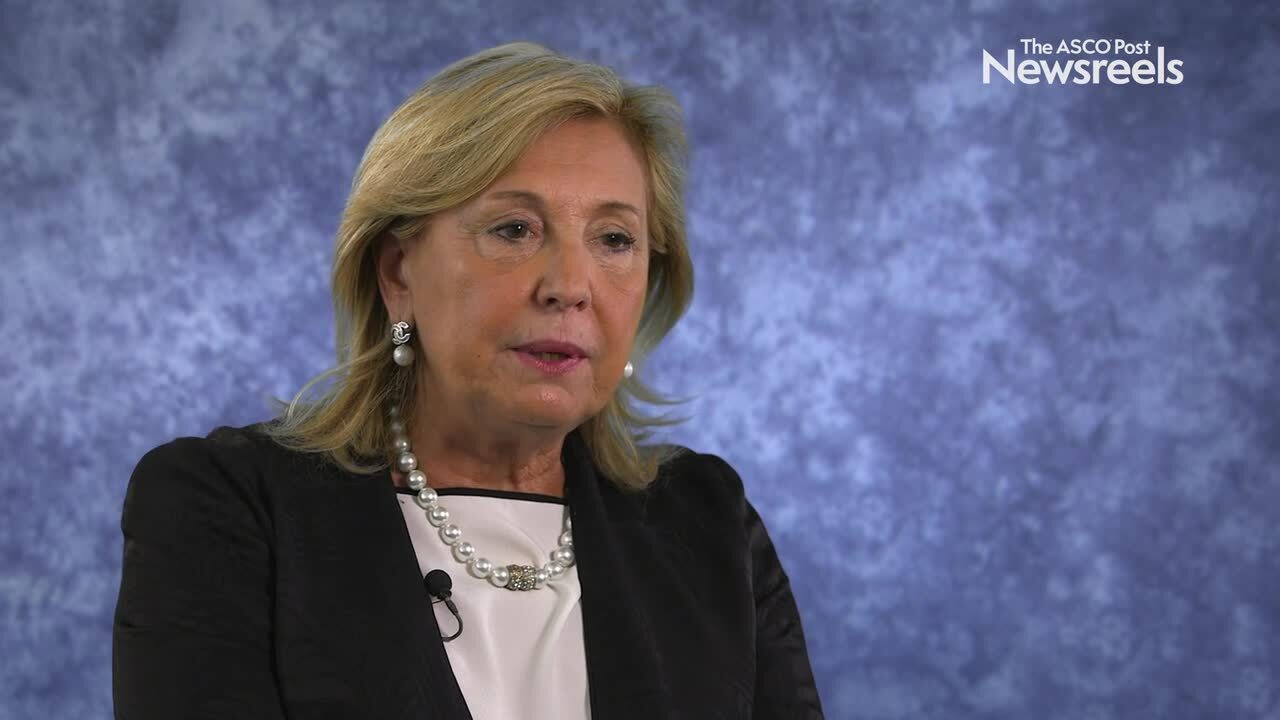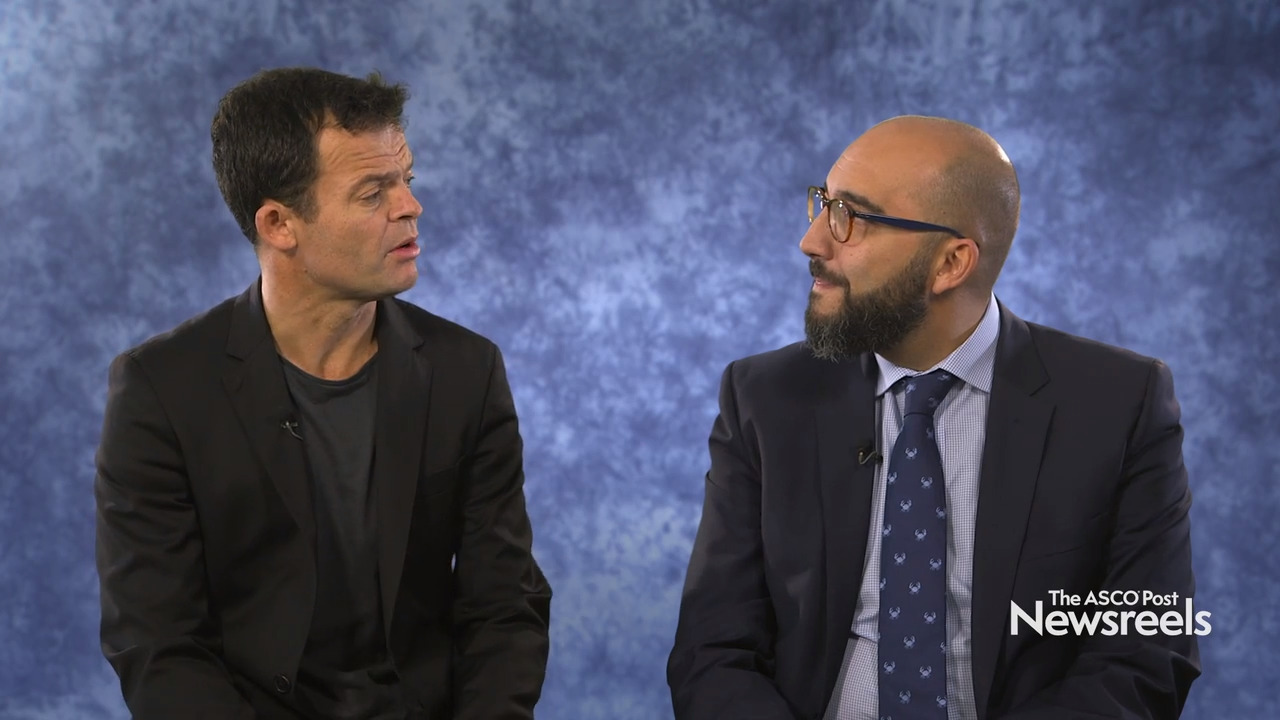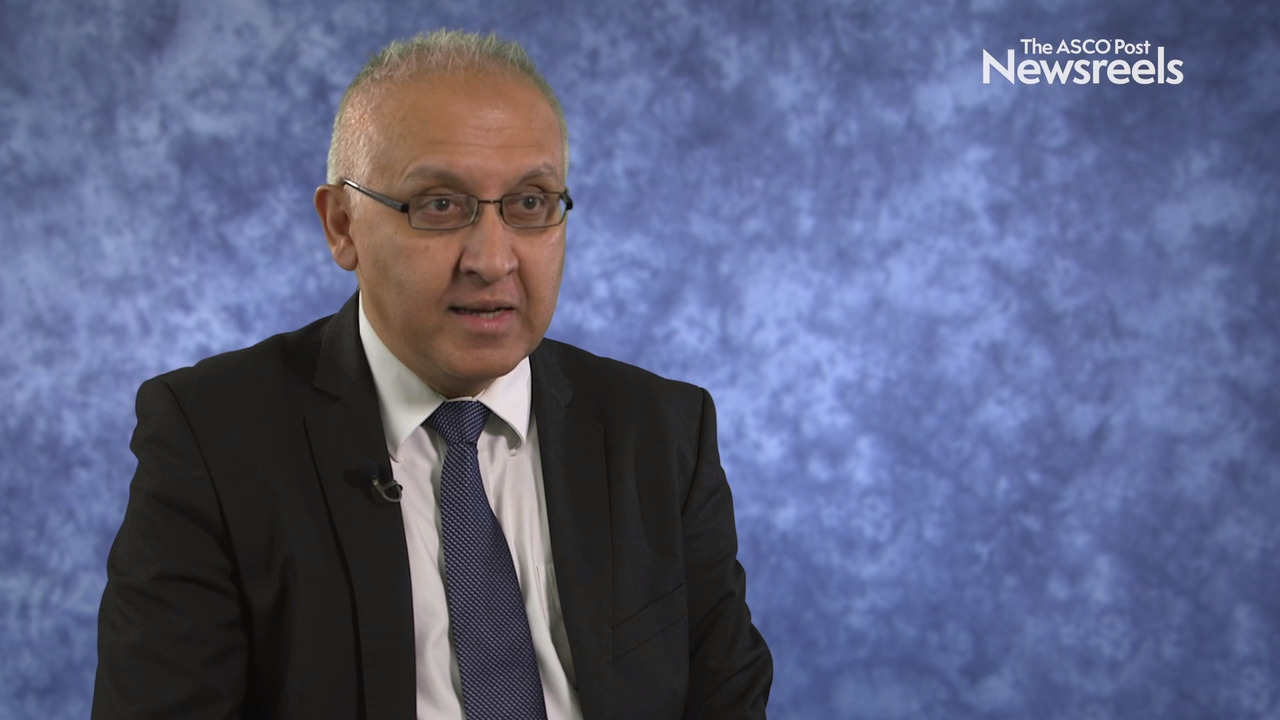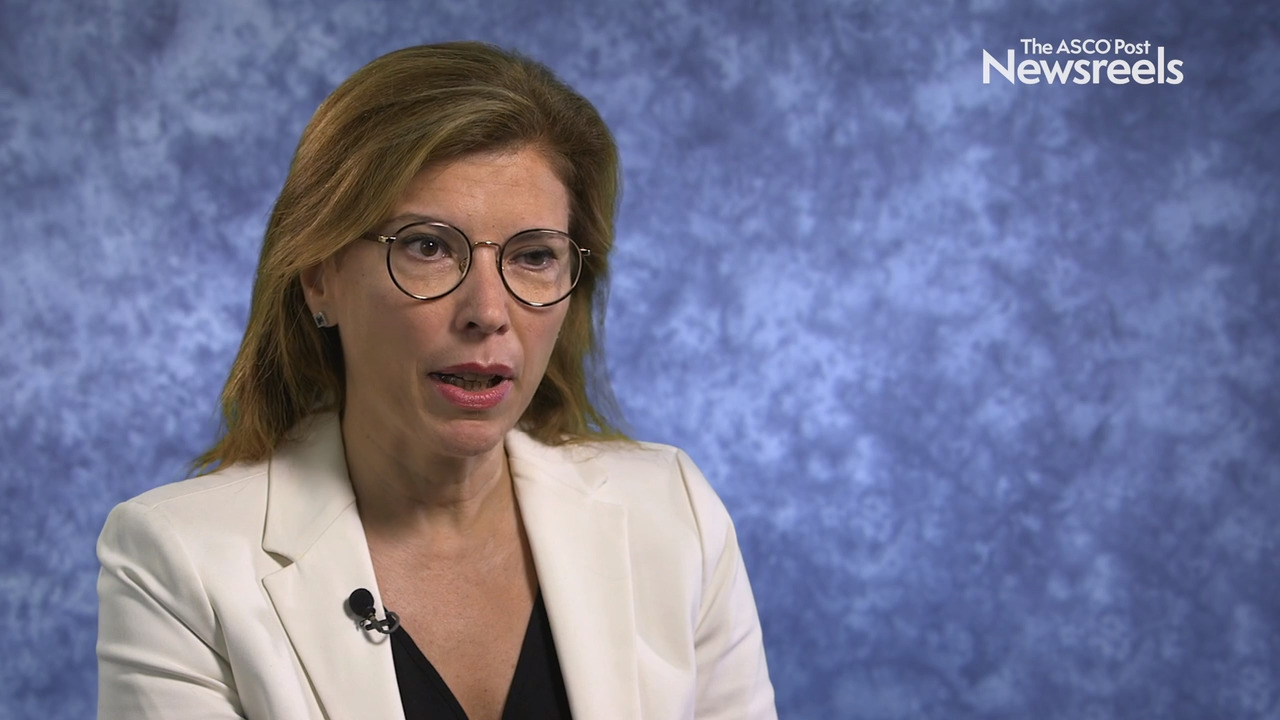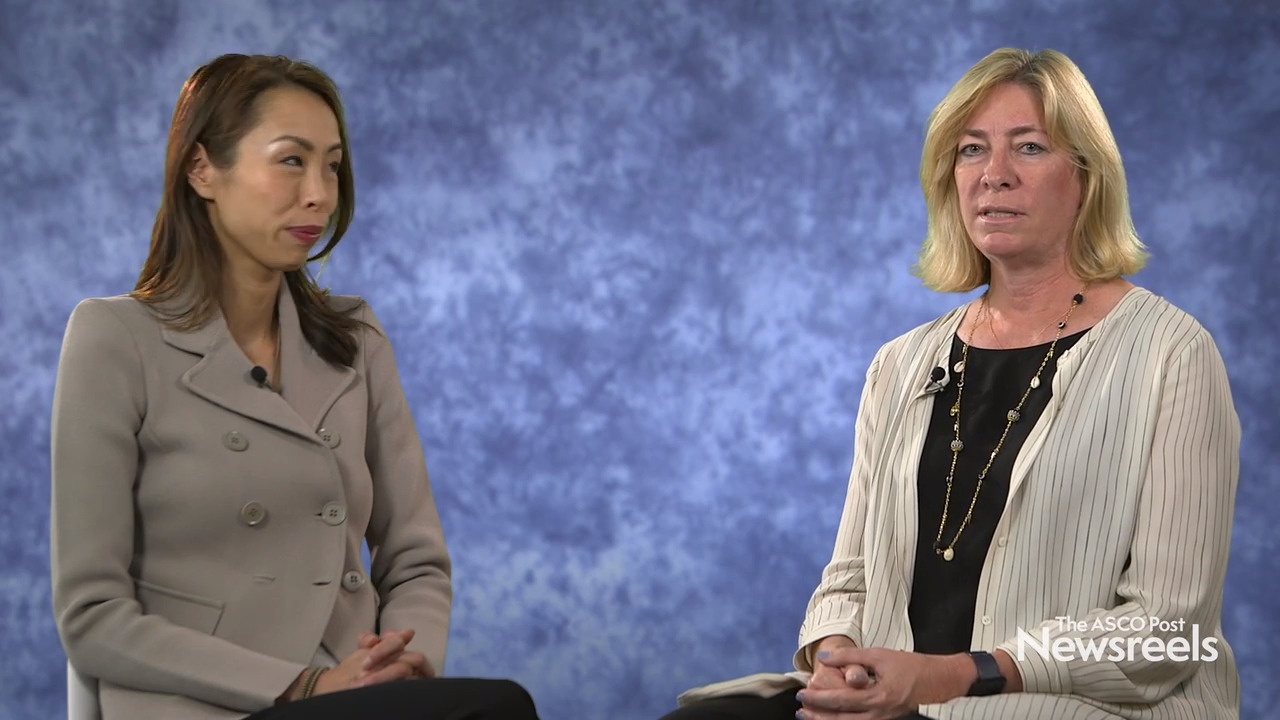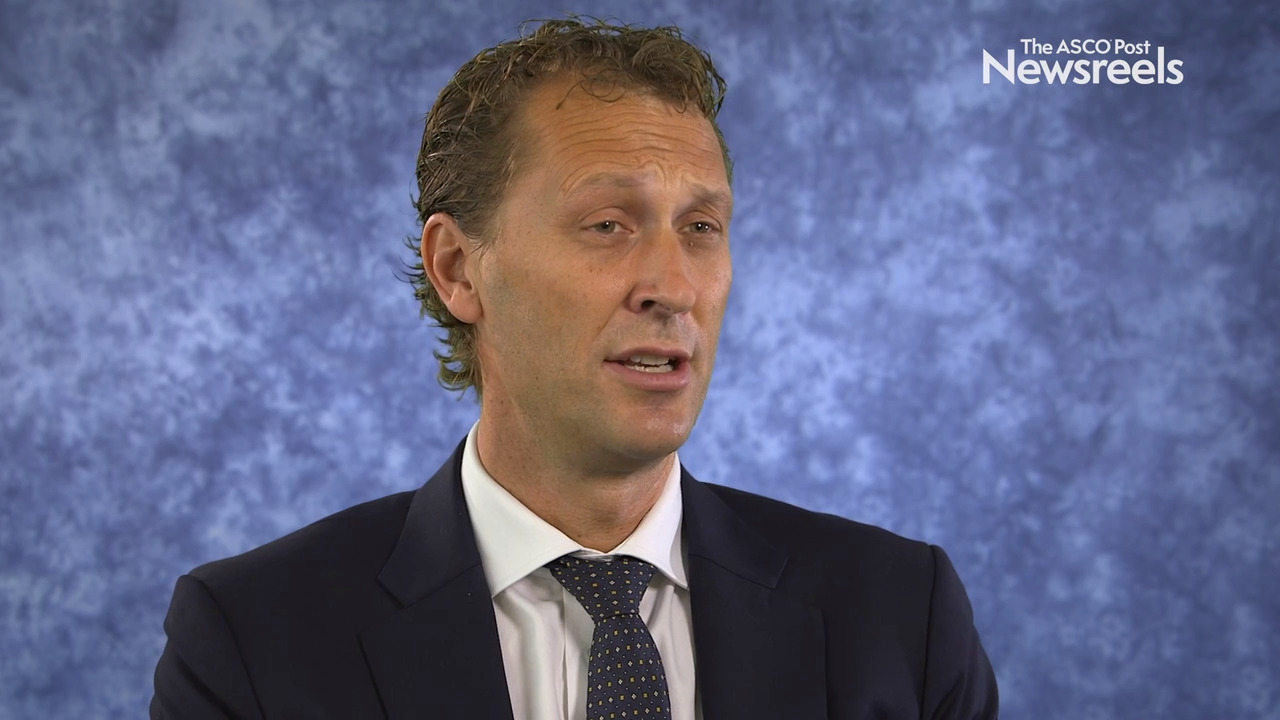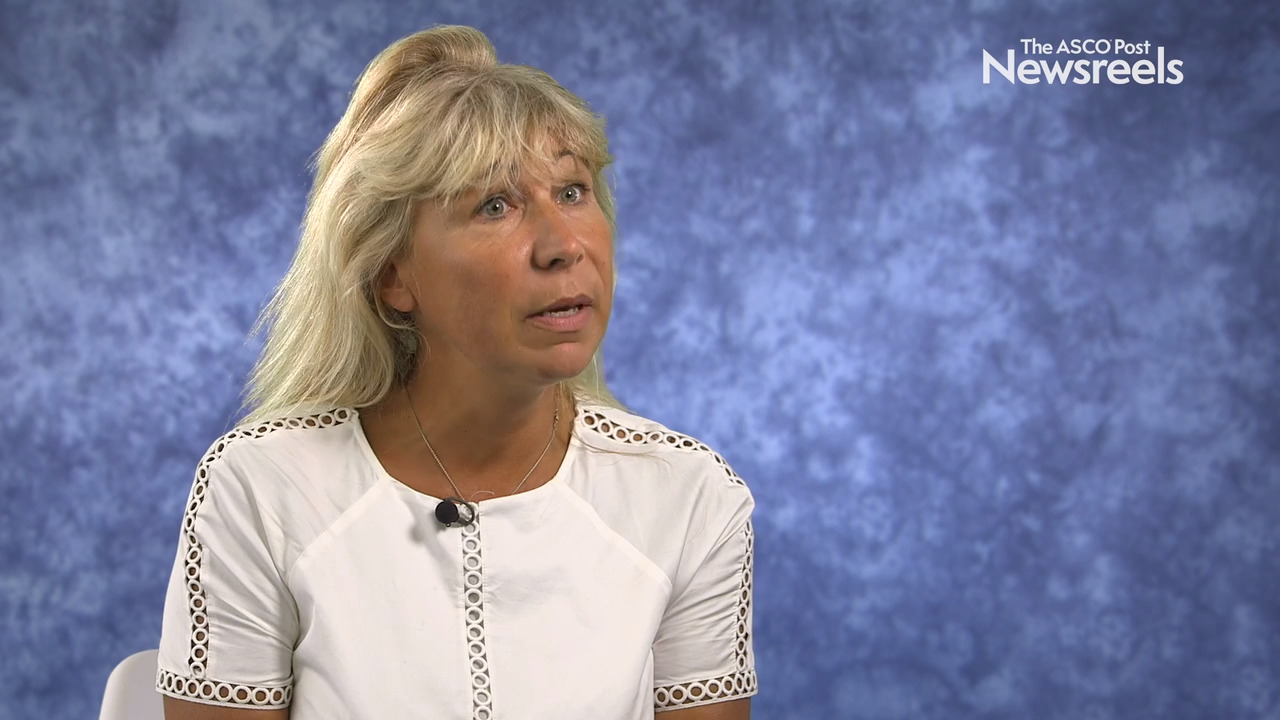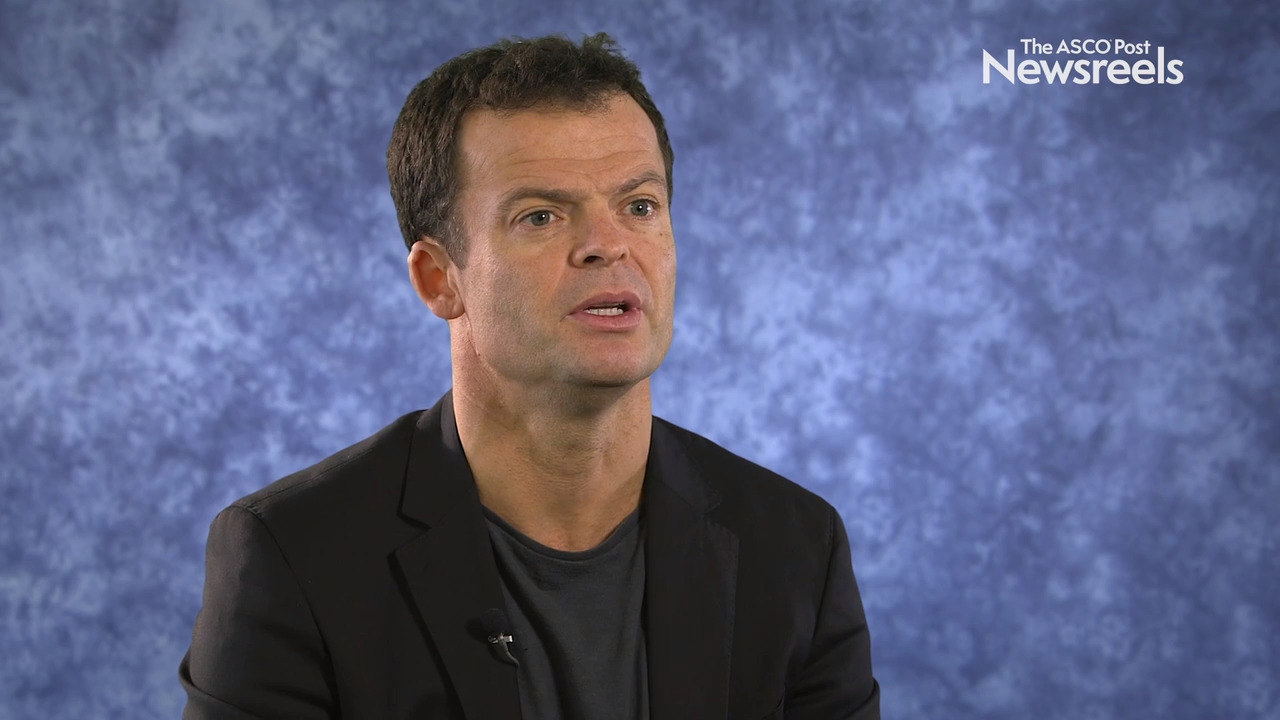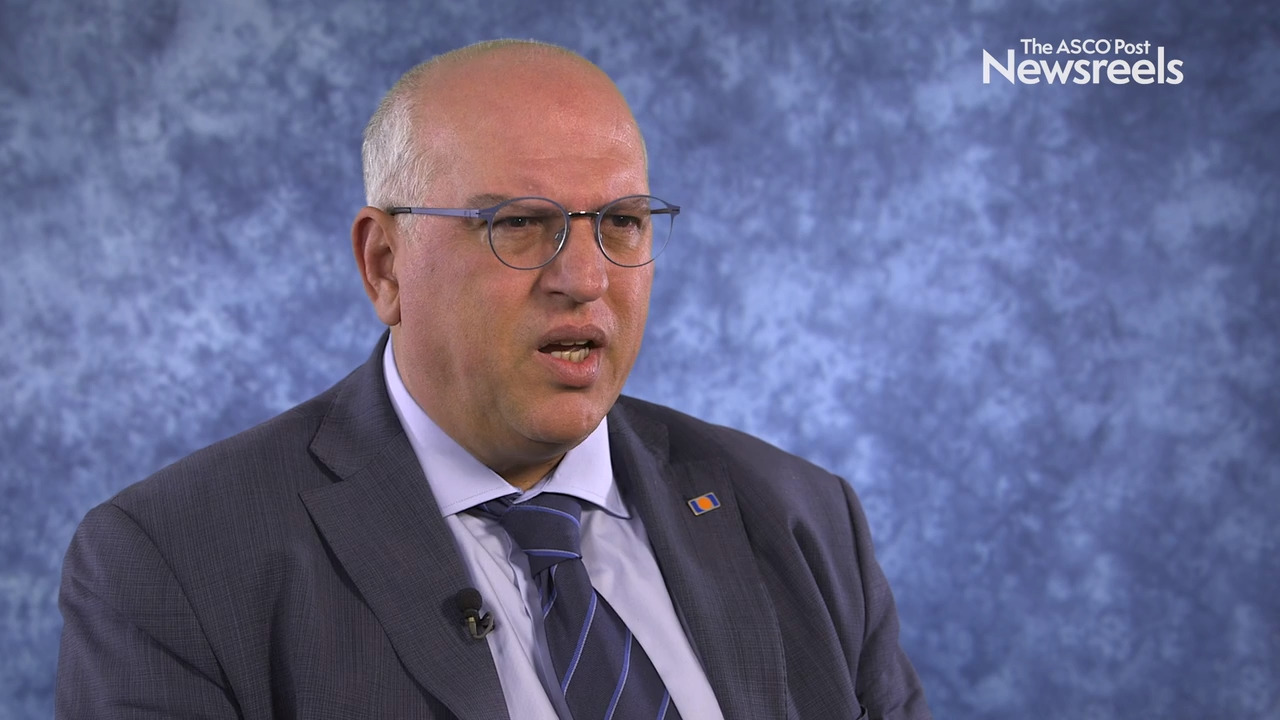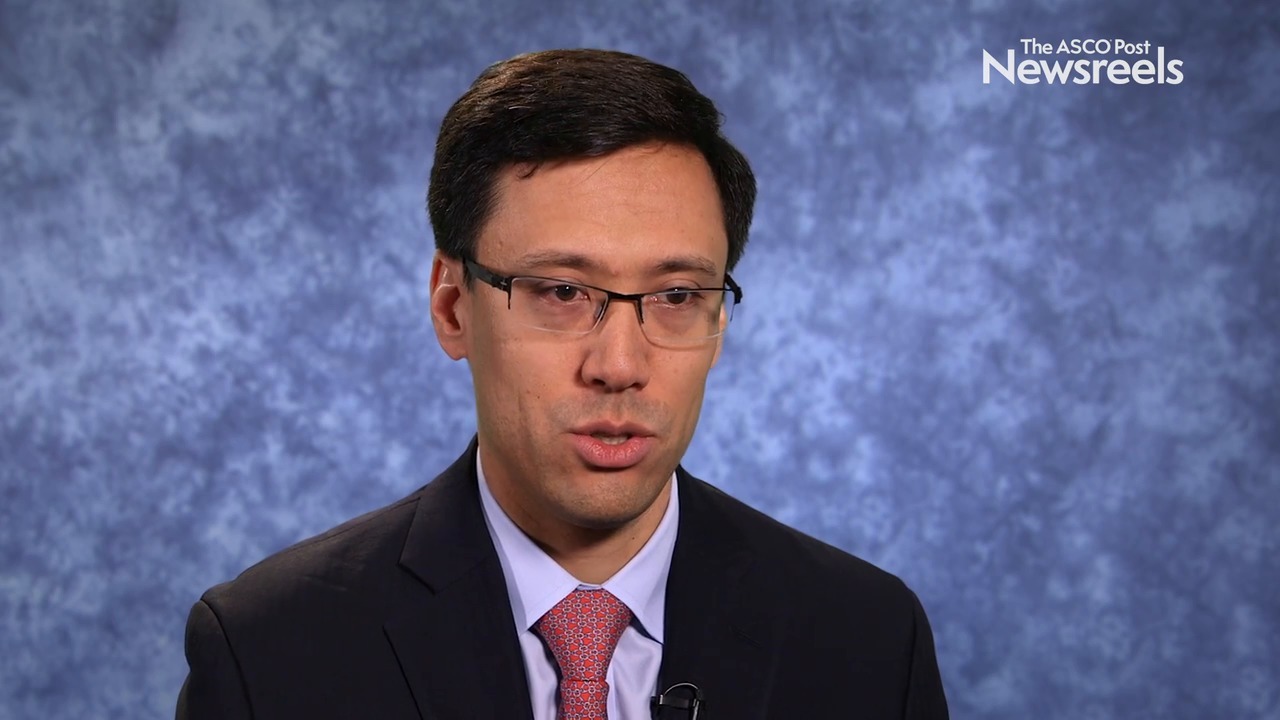Immunotherapy in Relapsed or Refractory Primary Mediastinal Large B-Cell Lymphoma
Findings from the phase Ib KEYNOTE-013 and phase II KEYNOTE-170 trials reported in the Journal of Clinical Oncology by Armand et al indicated that pembrolizumab is highly active in relapsed or refractory primary mediastinal large B-cell lymphoma (PMBCL). The KEYNOTE-170 trial supported the 2018...
5-Year Follow-up of KEYNOTE-006 Trial of Pembrolizumab vs Ipilimumab in Advanced Melanoma
In a post hoc 5-year follow-up of the KEYNOTE-006 trial reported in The Lancet Oncology, Caroline Robert, MD, of Institut Gustave Roussy, Université Paris-Sud, and colleagues found that pembrolizumab maintained overall and progression-free survival benefits over ipilimumab in advanced melanoma.1 In ...
Debating the Role of Chemoimmunotherapy in the First-Line Setting of CLL
The advent of new targeted agents for chronic lymphocytic leukemia (CLL) has ushered in a golden age of treatment, leading to longer, more durable periods of disease control. Not all oncologists are convinced, however, that improvements in progression-free survival alone warrant dispensing with...
Role of Radiotherapy for Patients With Refractory Lymphoma Receiving CAR T-Cell Therapy
Although the role of radiotherapy in chimeric antigen receptor (CAR) T-cell therapy for lymphoma is still evolving, radiotherapy “would be an ideal bridging therapy” for patients with chemorefractory diffuse large B-cell lymphoma, stated George Mikhaeel, MD, Professor of Radiation Oncology and...
Phase III Evidence Supports Neoadjuvant Immunotherapy Plus Chemotherapy for Early Triple-Negative Breast Cancer
Immunotherapy has changed the treatment paradigms for melanoma, lung cancer, bladder cancer, and renal cancer. Now, checkpoint inhibitor therapy is making inroads in triple-negative breast cancer—one of the most difficult-to-treat aggressive types of breast cancer. The addition of the checkpoint...
Algorithm for Identifying Genetic Mutations Likely to Respond to Immunotherapy
A new model works to determine which genetic mutations may respond best to treatment with immunotherapy. Richman et al published the data on the model’s development in Cell Systems, and the algorithm, antigen.garnish, is already available online as an open source technology to serve as a resource. ...
Pegilodecakin Plus Pembrolizumab or Nivolumab in Advanced Solid Tumors
In a phase Ib trial reported in The Lancet Oncology, Naing et al found that the combination of pegilodecakin (pegylated interleukin [IL]-10) with the programmed cell death protein 1 (PD-1) inhibitor pembrolizumab or nivolumab was active in previously treated advanced solid tumors. In the study,...
Nivolumab vs Chemotherapy in Previously Treated Advanced Esophageal Squamous Cell Carcinoma
As reported in The Lancet Oncology by Kato et al, the phase III ATTRACTION-3 trial conducted in predominantly Asian patients has shown a survival benefit with nivolumab vs paclitaxel or docetaxel in patients with advanced esophageal squamous cell carcinoma who were refractory to or intolerant of...
Managing Rectal Cancer: Better Outcomes Now, but Still a Challenging Clinical Setting
The management of rectal cancer has evolved over the past decades, yielding several major practice changes that have substantially improved outcomes. However, rectal cancer treatment remains challenging and even with improved outcomes can result in life-altering morbidity. To shed light on the...
Jorge J. Castillo, MD, on Evolution of Therapy for Relapsed/Refractory Multiple Myeloma
Jorge J. Castillo, MD, of Dana-Farber Cancer Institute, discusses the many advances in treating relapsed and/or refractory multiple myeloma, including novel immunomodulators, proteasome inhibitors, and monoclonal antibodies, as well as emerging treatments such as chimeric antigen receptor T-cell therapy and antibody-drug conjugates.
Richard I. Fisher, MD, on Follicular Lymphoma: Optimizing First-Line Therapy
Richard I. Fisher, MD, of Fox Chase Cancer Center, discusses the improvement in survival for patients with follicular lymphoma, new targeted biologic agents providing alternative treatments, and chemoimmunotherapy (a standard in many cases).
Nitin Jain, MD, on CLL: Is There a Role for Chemoimmunotherapy?
Nitin Jain, MD, of The University of Texas MD Anderson Cancer Center, discusses the debate on evolving strategies in first-line treatment of CLL.
William G. Wierda, MD, PhD, on Evolving Strategies for First-Line Treatment of CLL
William G. Wierda, MD, PhD, of The University of Texas MD Anderson Cancer Center, offers commentary on the debate about evolving strategies in first-line chronic lymphocytic leukemia, the clinical trials on such agents as ibrutinib, BTK inhibitors, and venetoclax, and the interest in chemoimmunotherapy as a fixed duration treatment.
ESMO 2019: Interim Analysis of the BEACON CRC Trial
In an interim analysis of the phase III BEACON CRC trial reported at the European Society for Medical Oncology (ESMO) Congress 2019 (Abstract LBA32) and in The New England Journal of Medicine, Scott Kopetz, MD, PhD, and colleagues found improved overall survival and overall response rate in...
ESMO 2019: Overall Survival With Immunotherapy Doublet vs Chemotherapy in Advanced NSCLC
As reported at the European Society for Medical Oncology (ESMO) Congress 2019 (Abstract LBA4) and simultaneously in The New England Journal of Medicine by Matthew D. Hellmann, MD, and colleagues, the phase III CheckMate 227 trial has shown that nivolumab plus ipilimumab improved overall survival vs ...
Pembrolizumab for Relapsed or Refractory Mycosis Fungoides and Sézary Syndrome
In a phase II study reported in the Journal of Clinical Oncology, Khodadoust et al found that pembrolizumab was active in patients with advanced relapsed or refractory mycosis fungoides or Sézary syndrome. In the U.S.-based multicenter trial, 24 patients with advanced mycosis fungoides (n = 9) or...
Expert Point of View: Myung-Ju Ahn, MD, and Roy Herbst, MD, PhD
Formal discussant Myung-Ju Ahn, MD, of Samsung Medical Center Sungkyunkwan University, Seoul, South Korea, said that the CASPIAN results were similar to those of IMpower133, which found that the addition of the immune checkpoint inhibitor atezolizumab to etoposide/carboplatin significantly...
ESMO 2019: Study Suggests Difference in Response to Immunotherapy Regimens Between Sexes
A meta-analysis of 16 phase III randomized clinical trials evaluating programmed cell death protein 1/ligand 1 (PD-1/-L1) inhibitors either alone or in combination with chemotherapy for solid tumors has found that women derived significantly greater benefit from the addition of chemotherapy to...
ESMO 2019: 3-Year Results From CheckMate 238: Adjuvant Nivolumab vs Ipilimumab in Advanced Melanoma
Superior recurrence-free survival benefit was observed with nivolumab vs ipilimumab—and was consistent across disease stage, programmed cell death ligand 1 (PD-L1) expression levels, and BRAF mutation status—in patients with resected stage III/IV melanoma and a high risk of recurrence, according to ...
ESMO 2019: IMvigor130: Addition of Atezolizumab to Platinum-Based Chemotherapy in Advanced Urothelial Carcinoma
Patients with locally advanced or metastatic urothelial carcinoma demonstrated prolonged progression-free survival with the addition of atezolizumab to first-line platinum-based chemotherapy vs treatment with chemotherapy alone, according to phase III data from the IMvigor130 study presented by...
Nicoletta Colombo, MD, on Lenvatinib/Pembrolizumab for Advanced Endometrial Cancer
Nicoletta Colombo, MD, of Istituto Europeo di Oncologia, discusses the efficacy of lenvatinib/pembrolizumab in metastatic endometrial cancer. The combination showed antitumor activity, regardless of tumor microsatellite instability or DNA mismatch repair status (Abstract 994O).
Thomas Powles, MD, PhD, and Enrique Grande, MD, PhD, on Urothelial Carcinoma: Atezolizumab and Platinum-Based Chemotherapy
Thomas Powles, MD, PhD, of Queen Mary University of London, and Enrique Grande, MD, PhD, of MD Anderson Cancer Center, Madrid, discuss findings of the phase III IMvigor130 trial on the efficacy and safety of atezolizumab as monotherapy or combined with platinum-based chemotherapy vs placebo plus platinum-based chemotherapy in previously untreated locally advanced or metastatic urothelial carcinoma (Abstract LBA14).
Mansoor R. Mirza, MD, on Ovarian Cancer: Roundup of ESMO 2019 Top Abstracts
Mansoor R. Mirza, MD, of Copenhagen University Hospital, offers his perspective on three studies presented in the Presidential Symposium: the PRIMA/ENGOT-OV26/ GOG-3012 trial (niraparib for newly diagnosed advanced disease); the PAOLA-1/ENGOT-ov25 trial (olaparib plus bevacizumab maintenance therapy in newly diagnosed advanced disease); and the VELIA/COG-3005 study (integrating veliparib with front-line chemotherapy and maintenance therapy) (Abstracts LBA 1–4).
Ana Maria Arance Fernandez, MD, PhD, on Advanced Melanoma: Treatment With Cobimetinib/Atezolizumab vs Pembrolizumab
Ana Maria Arance Fernandez, MD, PhD, of the Hospital Clínic de Barcelona, discusses the negative results of the phase III IMspire170 trial, which evaluated cobimetinib/atezolizumab vs pembrolizumab monotherapy in patients with BRAF V600 wild-type melanoma (Abstract LBA69).
Georgina V. Long, MD, PhD, on Melanoma Brain Metastases: Nivolumab Alone or Nivolumab/Ipilimumab
Georgina V. Long, MD, PhD, of the Melanoma Institute Australia, The University of Sydney, discusses long-term outcomes from a phase II trial which showed that nivolumab/ipilimumab therapy demonstrated durable intracranial responses in patients with melanoma brain metastases. No new adverse events were reported (Abstract 1311O).
Solange Peters, MD, PhD, on NSCLC: CheckMate 227 Trial of Nivolumab/Ipilimumab vs Chemotherapy
Solange Peters, MD, PhD, of the Oncology Department of CHUV, discusses study findings from the first phase III trial to show PD-1 and CTLA-4 inhibition is effective in non–small cell lung cancer, with improved overall survival vs chemotherapy (Abstract LBA4).
Sungjune Kim, MD, PhD, on Merkel Cell Carcinoma: Nivolumab/Ipilimumab Plus SBRT
Sungjune Kim, MD, PhD, of the H. Lee Moffitt Cancer Center and Research Institute, discusses phase II study findings on the safety and tolerability of nivolumab/ipilimumab plus stereotactic body radiation therapy (Abstract 1321P).
Sherene Loi, MD, PhD, and Leisha A. Emens, MD, PhD, on HER2-Positive Breast Cancer: KATE2 Study of Atezolizumab/Trastuzumab Emtansine
Sherene Loi, MD, PhD, of Peter MacCallum Cancer Centre at the University of Melbourne, and Leisha A. Emens, MD, PhD, of UPMC Hillman Cancer Center, discuss overall survival in this phase II study of atezolizumab/trastuzumab emtansine (T-DM1) vs placebo/T-DM1 in previously treated HER2-positive advanced breast cancer (Abstract 305O).
Peter Schmid, MD, PhD, on Triple-Negative Breast Cancer: KEYNOTE-522 Trial of Pembrolizumab Plus Chemotherapy
Peter Schmid, MD, PhD, of Queen Mary University of London Barts Cancer Institute, discusses pathologic complete response data from a phase III study of pembrolizumab/chemotherapy vs placebo/chemotherapy as neoadjuvant treatment, followed by pembrolizumab vs placebo as 6-month adjuvant treatment for early triple-negative breast cancer (Abstract LBA8).
Isabelle Ray-Coquard, MD, PhD, on Ovarian Cancer: Olaparib Plus Bevacizumab
Isabelle Laure Ray-Coquard, MD, PhD, of the Centre Leon Bérard, discusses phase III study findings in patients with newly diagnosed, advanced ovarian cancer who received olaparib plus first-line bevacizumab maintenance treatment. Compared with placebo plus bevacizumab, olaparib improved progression-free survival, with the greatest benefit in women with BRCA mutations and positive homologous recombination deficiency status (Abstract LBA2).
Thomas Powles, MD, PhD, on Metastatic Urothelial Cancer: Durvalumab Plus Targeted Treatments
Thomas Powles, MD, PhD, of Queen Mary University of London, discusses the first study to examine immunotherapy and targeted treatment combinations with a personalized approach in bladder cancer. FGF, TORC1/2, and PARP inhibitors were explored in combination with durvalumab in selected patients (Abstract 902O).
Paolo A. Ascierto, MD, on Melanoma: Results From CheckMate 238 on Adjuvant Nivolumab vs Ipilimumab
Paolo A. Ascierto, MD, of the Istituto Nazionale Tumori, Napoli, discusses phase III study findings confirming the superior activity of nivolumab vs ipilimumab in resected stage III/IV melanoma in terms of regression-free survival after a minimum follow-up of 36 months (Abstract 1310O).
ESMO 2019: 5-Year Survival and Response With Nivolumab/Ipilimumab in Advanced Melanoma
An update of results of the phase III CheckMate 067 trial at 5 years presented by Larkin et al at the European Society for Medical Oncology (ESMO) 2019 Congress showed that both nivolumab in combination with ipilimumab and nivolumab alone provided significant improvements in overall survival,...
ESMO 2019: First-Line Immunotherapy Shows Clinical Benefit in Advanced Hepatocellular Carcinoma
New data have shown a trend toward clinically meaningful improvements in survival and response rates and a favorable safety profile with first-line immunotherapy compared to current standard treatment for advanced hepatocellular carcinoma (HCC). The data, reported by Yau et al at the European...
Prior Antibiotic Treatment and Response to Immune Checkpoint Inhibitor Therapy in Patients With Cancer
In a study presented in a brief report in JAMA Oncology, Pinato et al found that past—but not concurrent—use of broad-spectrum antibiotic therapy was associated with poorer treatment outcomes in patients receiving immune checkpoint inhibitors for various cancers in routine clinical practice. As...
Treatment-Free Survival as an Outcome Measure of Nivolumab/Ipilimumab Therapy in Advanced Melanoma
In a pooled analysis reported in the Journal of Clinical Oncology, Regan et al evaluated treatment-free survival as an outcome measure among patients with advanced melanoma receiving nivolumab/ipilimumab or either agent alone in the CheckMate 067 and 069 trials. Study Details The study involved...
How Ultrahigh-Dose Radiation Therapy, Interferon, and CAR T Cells May Boost Immunotherapy Effectiveness
This past June, the University of Pennsylvania established the Mark Foundation Center for Immunotherapy, Immune Signaling, and Radiation to study the role interferon and pattern recognition receptor signaling transduction pathways play in modulating the immune system’s ability to recognize and...
Immunotherapy for Recurrent or Metastatic Cervical, Vaginal, or Vulvar Carcinoma
As reported in the Journal of Clinical Oncology by Naumann et al, the phase I/II CheckMate 358 trial found that nivolumab showed activity in a cohort of patients with recurrent or metastatic cervical, vaginal, or vulvar squamous cell carcinoma. Study Details A total of 24 patients were enrolled...
Michael J. LaRiviere, MD, on Non-Hodgkin Lymphoma: Induction Radiation Before CAR T-Cell Therapy for Resistant Disease
Michael J. LaRiviere, MD, of the University of Pennsylvania, discusses the safety and efficacy of an alternate radiation-based approach to using cytotoxic chemotherapy alone in preparation for CAR T-cell treatment (Abstract 135).
Andreas Rimner, MD, on the PACIFIC Trial: Durvalumab for Stage III NSCLC
Andreas Rimner, MD, of Memorial Sloan Kettering Cancer Center, discusses study findings showing that, for patients with stage III non–small cell lung cancer, durvalumab reduced the rate of and time to disease progression vs placebo and also reduced the number of new distant lesions (Abstract LBA6).
Expert Point of View: Alex A. Adjei, MD, PhD
Alex A. Adjei, MD, PhD, of Mayo Clinic, Rochester, Minnesota, who was not involved in KEYNOTE-189 or KEYNOTE-021, provided some perspective on the exploratory analyses of tumor mutational burden from these and other studies. “Four studies at this meeting presented data on tumor mutational burden...
POLE/POLD1 Mutations Across Cancer Types and Association With Immune Checkpoint Inhibitor Therapy Outcomes
In a research letter published in JAMA Oncology, Wang et al identified the frequency of mutations in DNA polymerase epsilon (POLE) and delta 1 (POLD1) genes across cancer types and found that these mutations were associated with better survival outcomes among patients receiving immune checkpoint...
ASTRO 2019: Patterns of Disease Progression in Patients With Unresectable Stage III NSCLC: Analysis of the PACIFIC Trial
Andreas Rimner, MD, of Memorial Sloan Kettering Cancer Center, presented an update of the landmark PACIFIC trial at the 61st Annual Meeting of the American Society for Radiation Oncology (ASTRO) (Abstract LBA-6). In earlier reports from the randomized phase III trial, Antonia et al had evaluated...
FDA Grants Approval to Lenvatinib/Pembrolizumab in Advanced Endometrial Cancer, Announces Project Orbis
The U.S. Food and Drug Administration (FDA) has announced Project Orbis, an initiative of the FDA Oncology Center of Excellence (OCE). Project Orbis provides a framework for concurrent submission and review of oncology drugs among its international partners. Under this project, the FDA, the...
Bevacizumab/Niraparib vs Niraparib Alone for Platinum-Sensitive Recurrent Ovarian Cancer
In the phase II NSGO-AVANOVA2/ENGOT-ov24 trial reported in The Lancet Oncology, Mansoor Raza Mirza, MD, and colleagues found that the combination of bevacizumab plus niraparib prolonged progression-free survival vs niraparib alone in women with platinum-sensitive recurrent ovarian cancer. Study...
ASTRO 2019: SBRT After Disease Progression on Immunotherapy Increases PFS in Patients With Metastatic NSCLC
Non–small cell lung cancer (NSCLC) accounts for the vast majority of all lung cancers—between 80% and 85% of those diagnosed in the United States—and is among the most deadly cancers for both men and women, exceeding the mortality rate of colon, breast, and pancreatic cancers combined. The results...
WCLC 2019: KEYNOTE-024 Survival Update Shows Benefit With Pembrolizumab vs Chemotherapy in Advanced NSCLC
First-line pembrolizumab monotherapy provides durable long-term overall survival benefit compared to chemotherapy in patients with advanced non–small cell lung cancer (NSCLC), according to data from the KEYNOTE-024 trial presented by Martin Reck, MD, PhD, at the International Association for the...
Liquid Biopsy to Determine Patient Response to Immune Checkpoint Blockade
Although studies have demonstrated that microsatellite instability (MSI) and high tumor mutational burden (TMB) are promising pan-tumor biomarkers for identifying patients for treatment with immune checkpoint blockade, obtaining tissue from unresectable or metastatic solid tumors for genetic...
WCLC 2019: Final Overall Survival Results of IMpower131 Trial in Advanced Squamous NSCLC
Patients with stage IV squamous non–small cell lung cancer (NSCLC) with high programmed cell death ligand 1 (PD-L1) expression treated with atezolizumab and chemotherapy experienced longer overall survival rates than those treated with chemotherapy alone. The data from the IMpower131 trial were...
Pamiparib Plus Tislelizumab in Advanced Solid Tumors
In an Australian phase Ia/b trial reported in The Lancet Oncology, Friedlander et al found evidence of activity of the combination of the poly (ADP-ribose) polymerase inhibitor pamiparib and the programmed cell death protein 1 inhibitor tislelizumab in patients with previously treated advanced...
